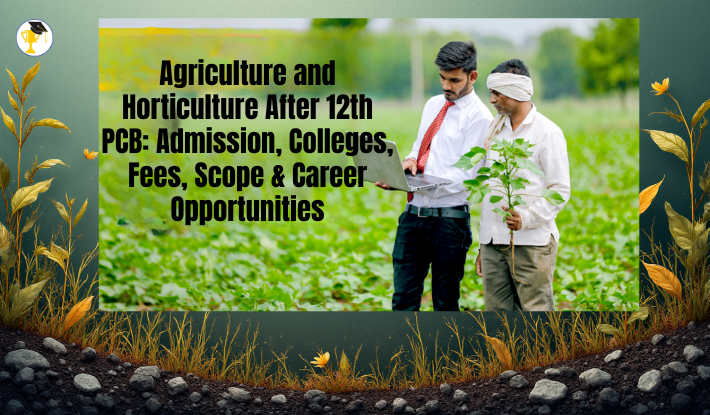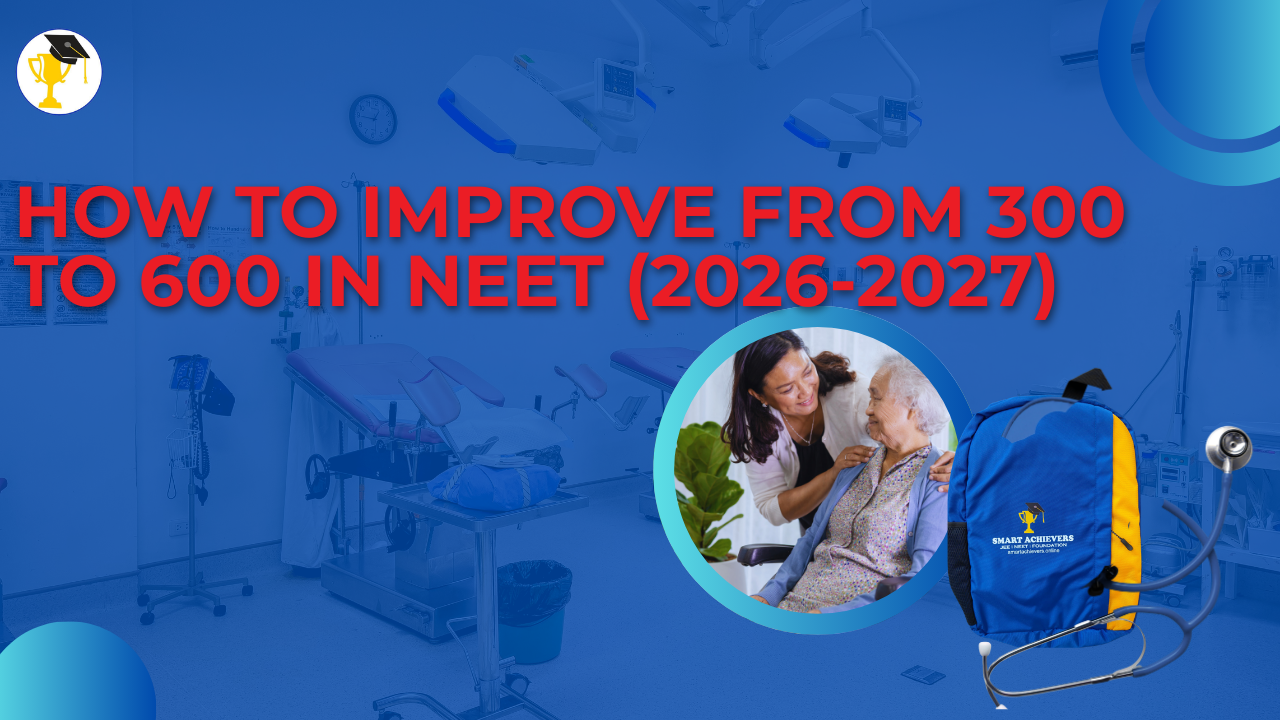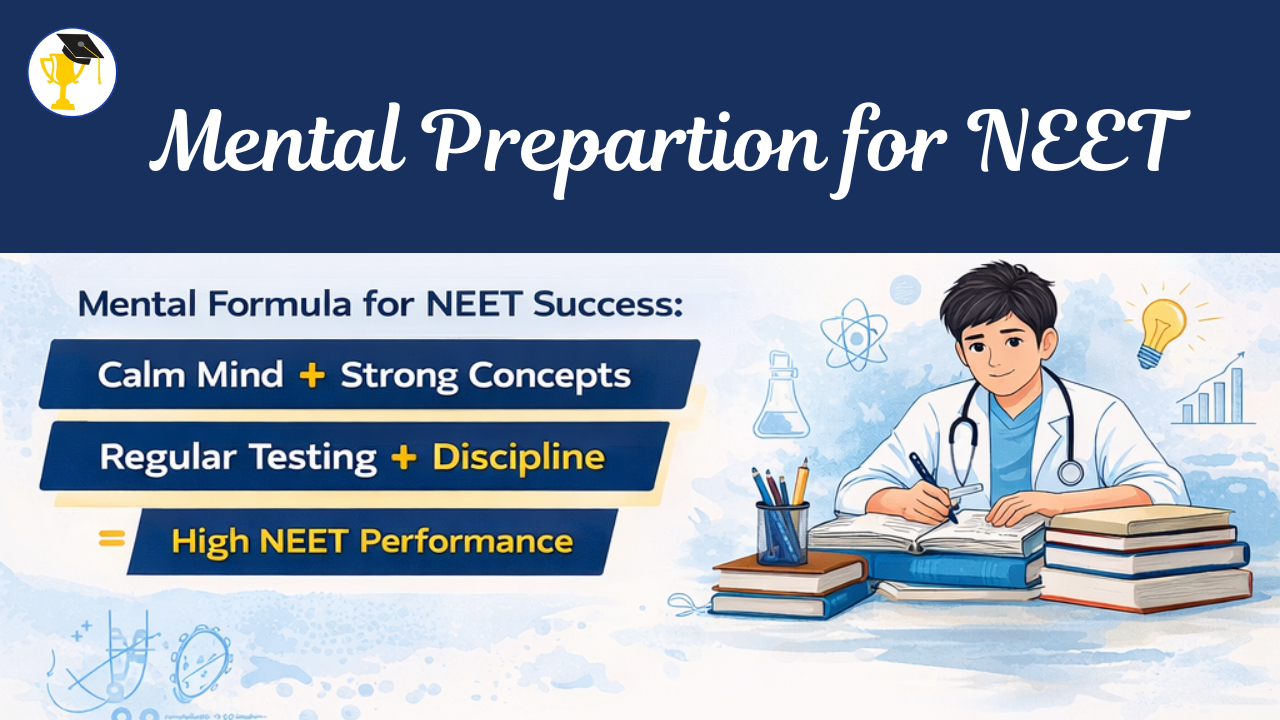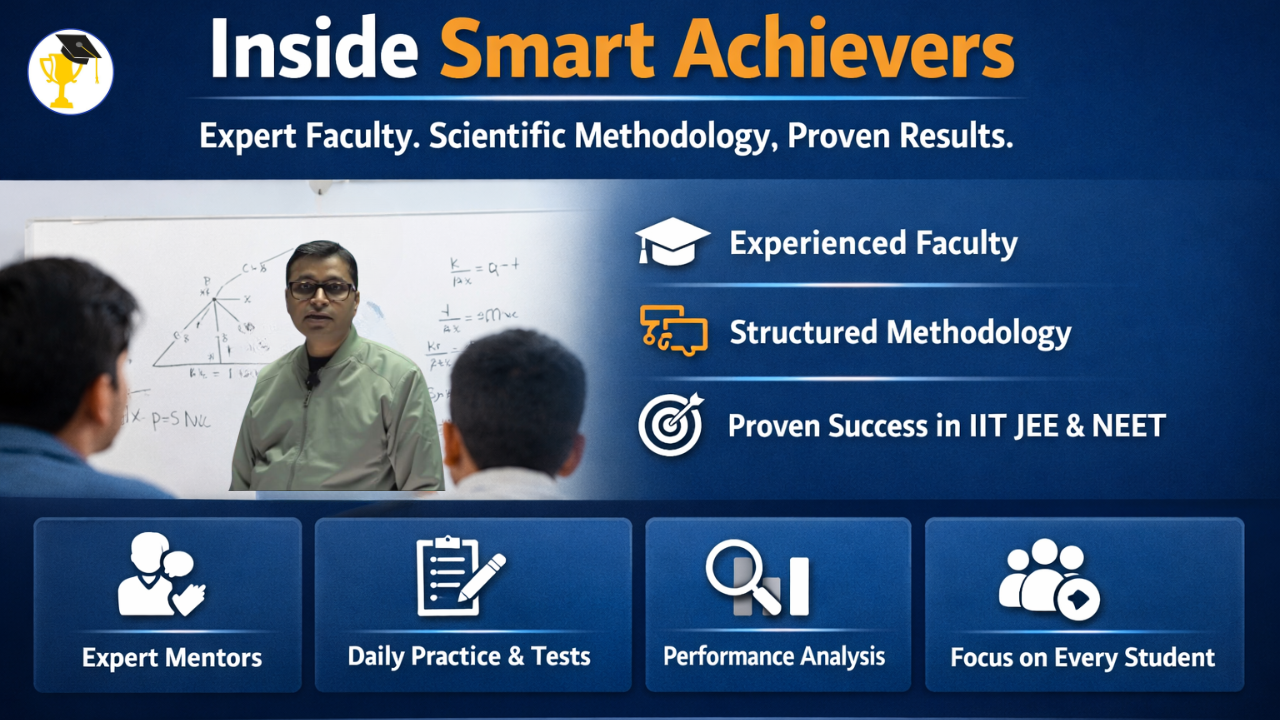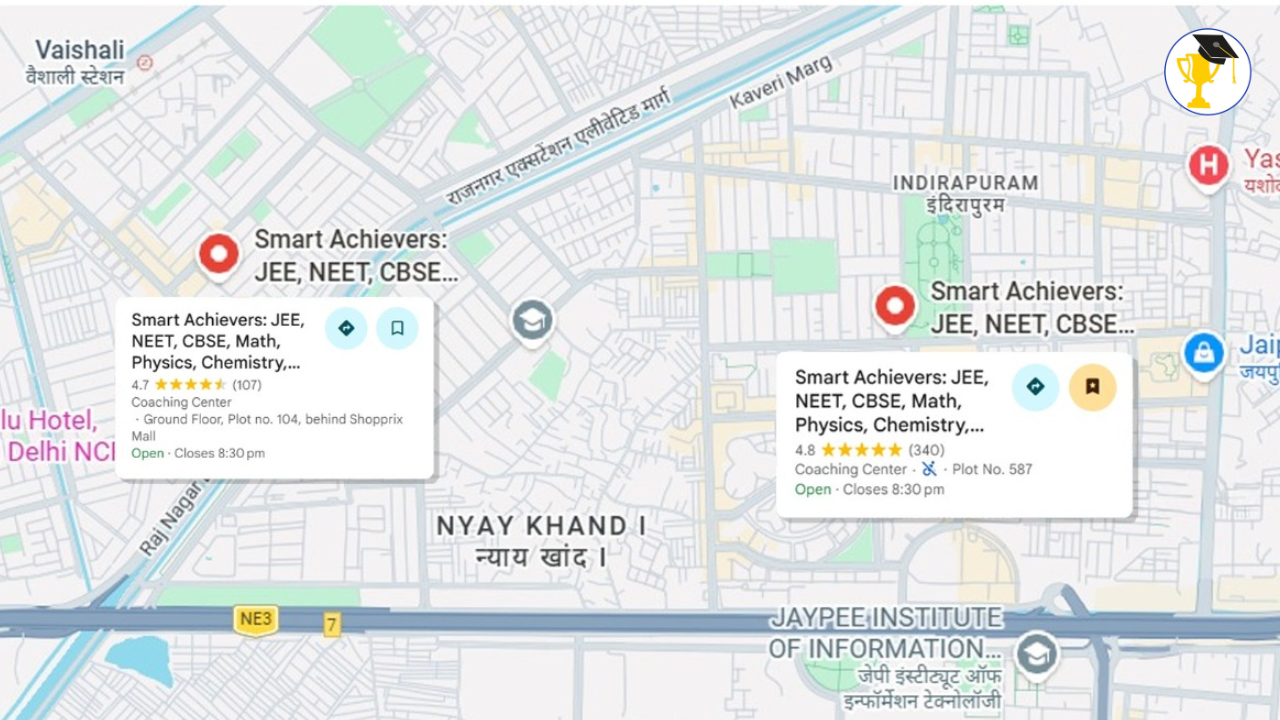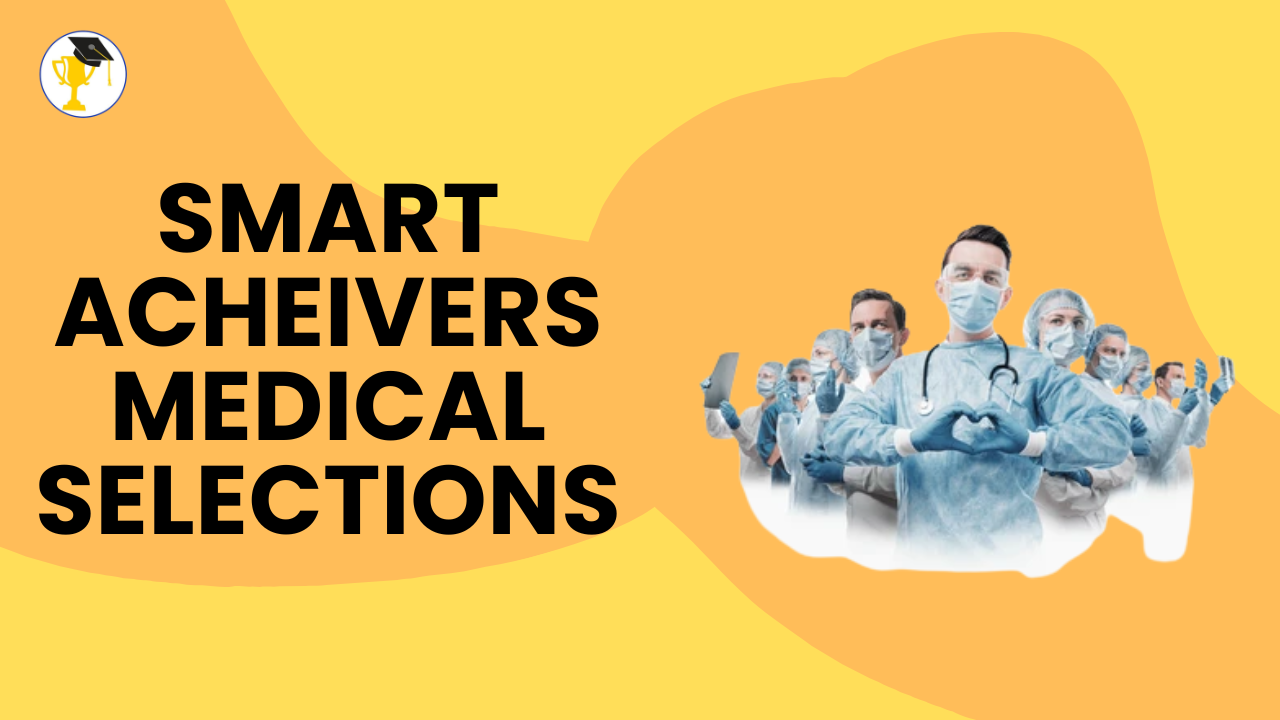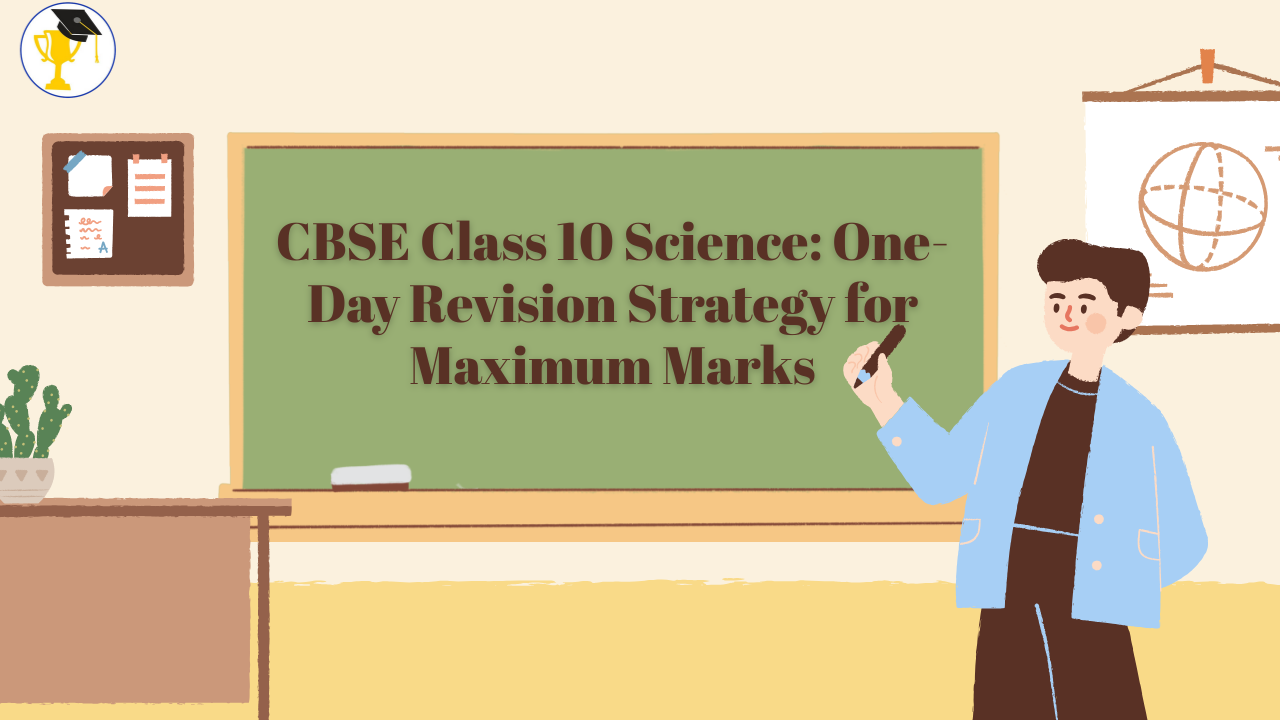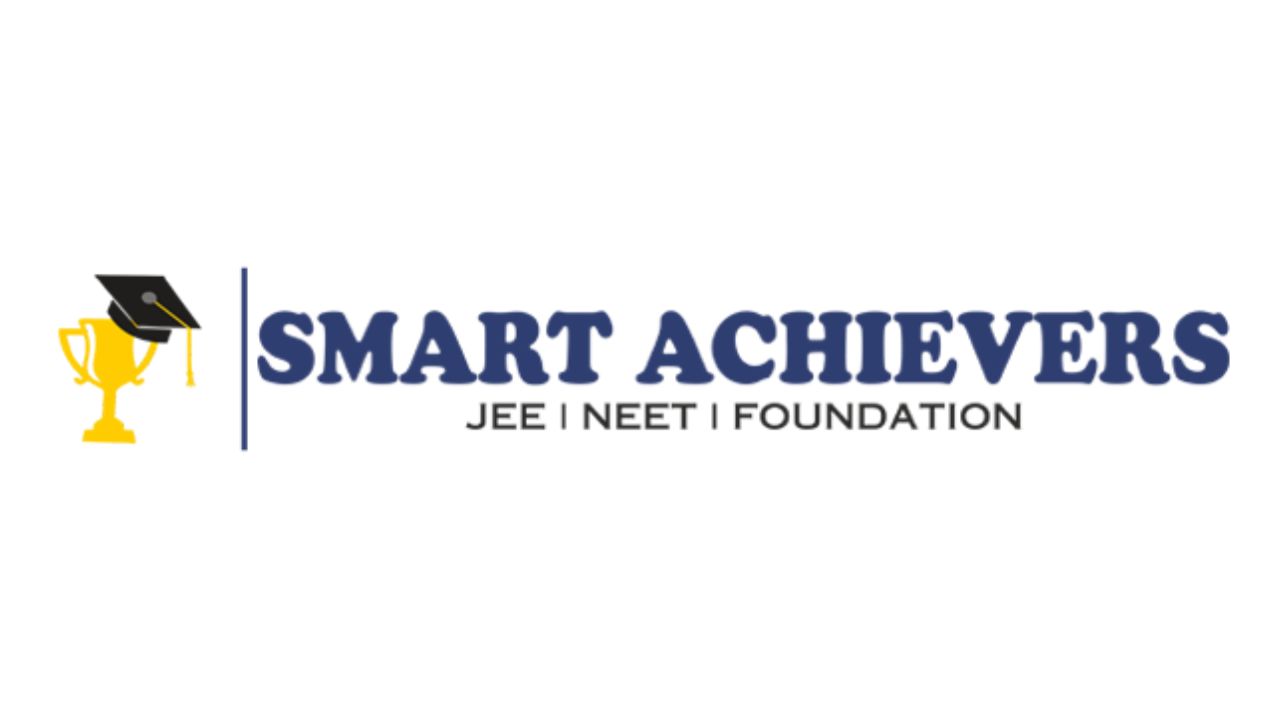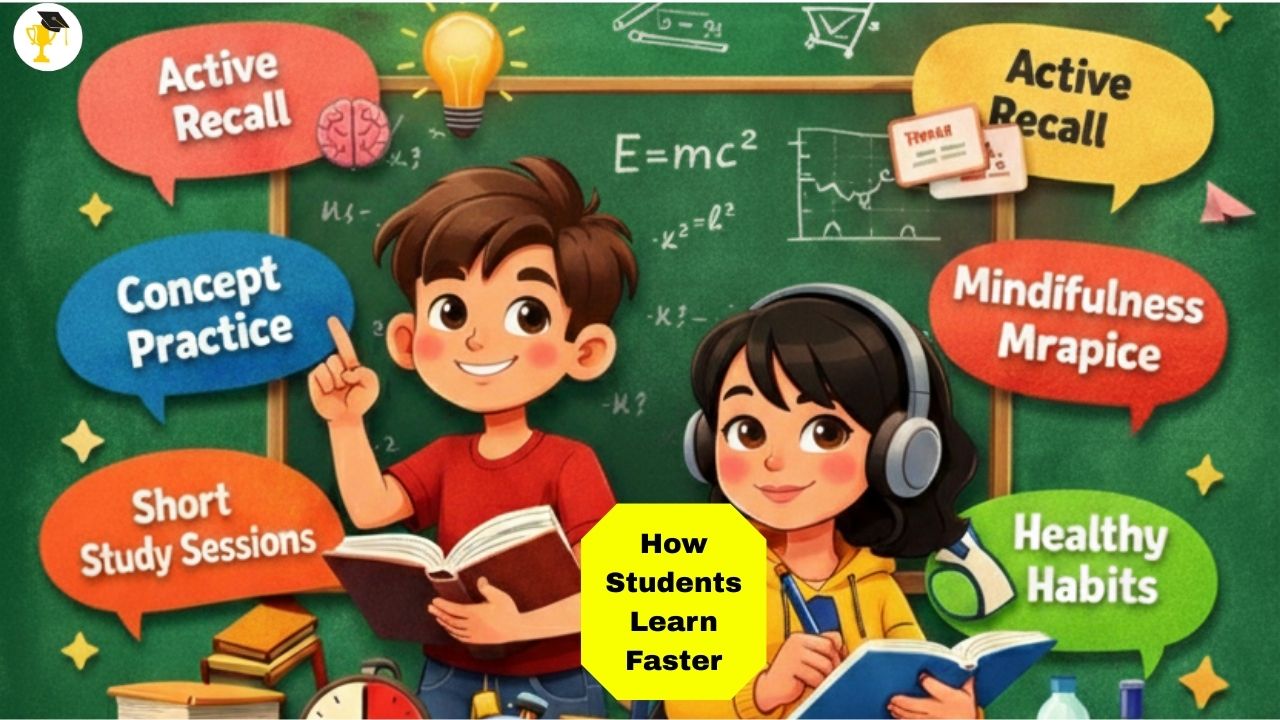Agriculture and Horticulture After 12th PCB: Admission, Colleges, Fees, Scope & Career Opportunities
As the backbone of the Indian economy, Agriculture and Horticulture are more than just traditional fields — they’re now modern, tech-driven industries that combine science, sustainability, and innovation.
With advancements in biotechnology, genetic research, and smart farming, these sectors are shaping the future of food security, the environment, and global trade.
If you love nature, farming, and environmental science, Agriculture or Horticulture after 12th PCB can lead you to a stable and meaningful career.
What is Agriculture and Horticulture?
Agriculture
Agriculture is the science and art of cultivating soil, growing crops, and raising livestock for food, fiber, and fuel.
It now includes biotechnology, irrigation systems, agribusiness, and sustainable resource management.
Horticulture
Horticulture is a branch of agriculture that focuses on the cultivation of fruits, vegetables, flowers, and ornamental plants.
It combines botany, genetics, and landscaping to improve crop quality, yield, and environmental health.
Both fields offer careers that directly impact food security, sustainability, and rural development.
Courses in Agriculture and Horticulture After 12th PCB
Students from the PCB (Physics, Chemistry, Biology) stream are eligible for various agriculture and horticulture programs:
| Course Name |
Duration |
Type |
| B.Sc. Agriculture |
4 years |
Undergraduate |
| B.Sc. Horticulture |
4 years |
Undergraduate |
| B.Tech. Agricultural Engineering |
4 years |
Undergraduate |
| B.Sc. Forestry / Agronomy / Soil Science |
4 years |
Undergraduate |
| M.Sc. Agriculture / Horticulture |
2 years |
Postgraduate |
| Diploma in Agriculture / Horticulture |
1–2 years |
Diploma |
PCB or PCM students can apply. Agriculture courses focus more on crop science and technology, while horticulture emphasizes plant breeding and garden management.
Eligibility Criteria
-
Qualification: 10+2 with PCB / PCM / PCMB
-
Minimum Marks: 50–60% aggregate (varies by college)
-
Age Limit: Minimum 17 years
-
Entrance Exams:
-
ICAR AIEEA (National Level – Indian Council of Agricultural Research)
-
CUET (UG) – for central universities
-
State-Level Exams – KEAM, AP EAMCET, TS EAMCET, BCECE, etc.
-
Some universities offer direct admission based on merit.
Top Colleges in India for Agriculture and Horticulture
Government Colleges
| College |
Location |
| Indian Agricultural Research Institute (IARI) |
New Delhi |
| Punjab Agricultural University |
Ludhiana |
| Tamil Nadu Agricultural University (TNAU) |
Coimbatore |
| GB Pant University of Agriculture & Technology |
Uttarakhand |
| Acharya N.G. Ranga Agricultural University |
Andhra Pradesh |
| University of Agricultural Sciences |
Bangalore |
| Dr. Y.S. Parmar University of Horticulture & Forestry |
Himachal Pradesh |
| Banaras Hindu University (BHU) |
Varanasi |
Private Colleges
| College |
Location |
| Amity Institute of Horticulture Studies |
Noida |
| VIT (Vellore Institute of Technology) |
Vellore |
| SRM Institute of Science & Technology |
Chennai |
| Lovely Professional University (LPU) |
Punjab |
| Chandigarh University |
Mohali |
| Sam Higginbottom University of Agriculture |
Prayagraj |
Fee Structure
| Type of College |
Annual Fee Range (INR) |
| Government Universities |
15,000 – 70,000 |
| Private Universities |
80,000 – 2,50,000 |
Scholarships are available through ICAR, state agriculture boards, and national merit schemes.
Core Subjects You’ll Study
Agriculture and horticulture courses cover a mix of theoretical knowledge, lab work, and field training.
-
Principles of Agronomy
-
Soil Science & Fertility
-
Genetics & Plant Breeding
-
Agricultural Biotechnology
-
Horticultural Crop Production
-
Plant Pathology & Entomology
-
Agricultural Meteorology
-
Irrigation & Water Management
-
Organic Farming
-
Agribusiness & Marketing
-
Post-Harvest Technology
Students also take part in farm internships, field projects, and government-sponsored training programs.
Scope and Career Opportunities
With global emphasis on sustainable farming, food technology, and climate-smart agriculture, this field offers excellent career prospects in both public and private sectors.
Career Options After B.Sc. Agriculture / Horticulture
Sectors Hiring Graduates
-
Government Agriculture Departments
-
ICAR, NABARD, FSSAI, and State Agriculture Boards
-
Fertilizer & Seed Companies
-
Food & Beverage Industries (ITC, Nestlé, Amul)
-
NGOs and Environmental Organizations
-
Research Institutes and AgriTech Startups
Global Opportunities
Agriculture and Horticulture graduates are in demand worldwide for research, agribusiness, and sustainability projects.
Top Countries for Careers
| Country |
Average Salary (INR Equivalent) |
Job Sectors |
| USA |
50–90 LPA |
Agribusiness, Biotechnology |
| Canada |
35–65 LPA |
Food Research, Sustainability |
| Australia |
40–70 LPA |
Farm Management, Environment |
| Germany |
40–60 LPA |
Agricultural Technology |
| New Zealand |
30–55 LPA |
Horticulture & Forestry |
Students can pursue M.Sc. or Ph.D. abroad with scholarships like DAAD (Germany), Fulbright (USA), and Commonwealth (UK).
Higher Studies and Specializations
After completing B.Sc. or B.Tech., you can specialize in:
-
M.Sc. Agriculture / Horticulture
-
M.Sc. Plant Pathology / Genetics
-
M.Tech. Agricultural Engineering / Food Processing
-
MBA in Agri-Business Management
-
Ph.D. in Plant Science / Soil Science
Popular Specializations:
Salary Range
| Job Role |
Average Salary (INR/year) |
| Agricultural Officer |
4–8 LPA |
| Horticulturist |
4–7 LPA |
| Plant Breeder / Scientist |
6–12 LPA |
| Agribusiness Manager |
6–15 LPA |
| Researcher / Professor |
8–20 LPA |
With experience or government positions, salaries can rise significantly, along with job security and pension benefits.
Why Choose Agriculture or Horticulture After 12th PCB?
Combines science, nature, and innovation
Strong government and private job opportunities
High global demand for food and crop experts
Growing AgriTech and sustainable farming sector
Opportunity to work for environmental and food security goals
Conclusion
Choosing Agriculture or Horticulture after 12th PCB is a smart decision for students passionate about plants, sustainability, and scientific innovation.
With global challenges like climate change and food scarcity, the world needs skilled professionals who can lead the future of smart and sustainable agriculture.
Whether you want to be a researcher, entrepreneur, or agricultural scientist, this field offers financial stability, respect, and a chance to contribute meaningfully to society and the planet.
Also Read this:
https://smartachievers.online/career-options-after-pcb-without-neet
 STUDY MATERIALS
STUDY MATERIALS
 COURSES
COURSES
 MORE
MORE

